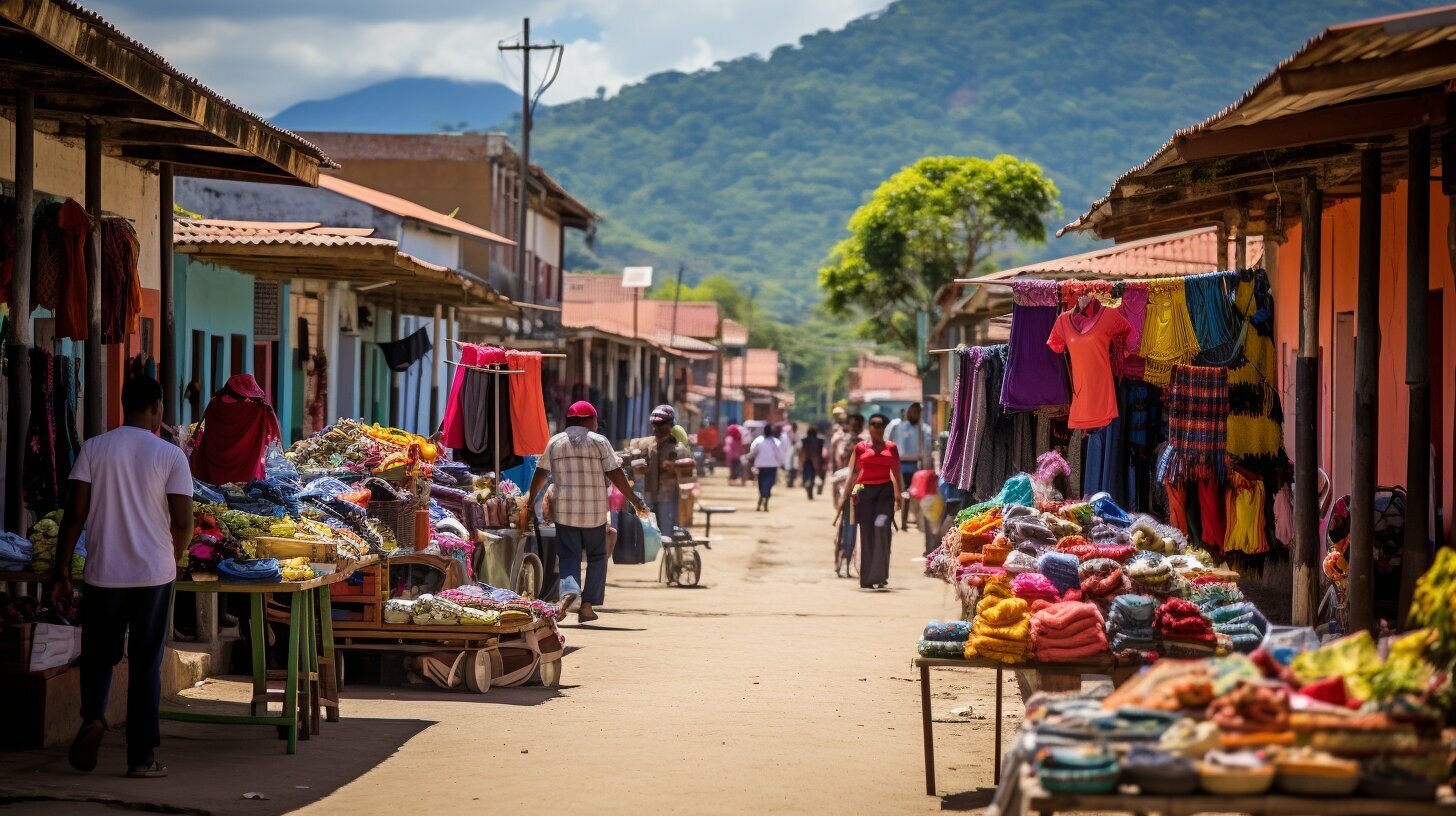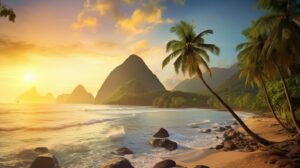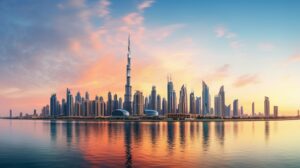What country is Honduras?
Honduras is a country located in Central America, bordered by Guatemala and El Salvador to the west and Nicaragua to the south and east. It is situated between the Caribbean Sea to the north and the Pacific Ocean to the south. The capital city is Tegucigalpa, and the official language is Spanish. With a population of approximately 9.7 million people, Honduras is a multiparty republic with a president as the head of state and government.
The country’s economy is primarily based on agriculture, and it faces numerous economic and social challenges. Honduras is known for its mountainous landscape and is home to various indigenous communities. The coastal lowlands have a hot and humid climate, while the highlands are cooler. Honduras has a rich pre-Columbian history, with significant Maya ruins and other archaeological sites. It gained independence from Spain in 1821 but has since experienced political instability and social strife.
Key Takeaways:
- Honduras is located in Central America, bordered by Guatemala, El Salvador, and Nicaragua.
- The country is known for its mountainous landscape and indigenous communities.
- Honduras has a rich pre-Columbian history and significant archaeological sites.
- The economy is primarily based on agriculture, and the country faces numerous economic and social challenges.
- Honduras gained independence from Spain in 1821 but has experienced political instability and social strife.
Exploring the Beauty of Honduras
Honduras offers a breathtaking landscape with its mountainous terrain, picturesque coastal lowlands, and vibrant indigenous communities. Nature enthusiasts will find themselves captivated by the diverse ecosystems and unique attractions that this Central American gem has to offer.
In the mountainous regions of Honduras, visitors can marvel at the rugged beauty of the Celaque National Park, home to the country’s highest peak, Cerro Las Minas. Hiking enthusiasts can embark on thrilling trails that lead to stunning viewpoints and cascading waterfalls, immersing themselves in the lush tropical forests and the rich biodiversity of the area.
For those seeking a coastal escape, the Bay Islands of Honduras boast crystal-clear waters teeming with marine life. Roatán, Utila, and Guanaja offer world-class diving sites, where coral reefs and vibrant underwater ecosystems await exploration. Snorkelers and divers can witness the spectacular diversity of marine species, including colorful fish, sea turtles, and even the magnificent whale shark.
Visitors to Honduras can also discover the rich cultural heritage of the indigenous communities that call this land their home. The Lenca people, for example, have a long history in Honduras and are known for their beautiful handicrafts and traditional practices. Taking part in a cultural tour or visiting local communities allows travelers to gain insight into the traditions, music, and cuisine that make up the vibrant tapestry of Honduras.
In conclusion, Honduras is a treasure trove of natural beauty and cultural richness. From its majestic mountains to its turquoise waters, this country offers a multitude of experiences for adventurers and explorers. Whether you are hiking through dense forests, diving into the depths of the Caribbean Sea, or discovering the traditions of indigenous communities, Honduras is sure to leave a lasting impression on all who venture there.
Unraveling the Culture of Honduras
The culture of Honduras is deeply rooted in its ancient history, with impressive ruins and archaeological sites providing glimpses into its pre-Columbian past. This vibrant and diverse culture is shaped by a mix of indigenous, European, and African influences, making it a truly fascinating destination for those seeking to explore the rich tapestry of Central American heritage.
One of the most notable aspects of Honduran culture is the abundance of archaeological sites that dot the country’s landscape. From the majestic ruins of Copán to the mysterious stelae of Quiriguá, these remnants of ancient civilizations offer a window into the remarkable achievements of the Mayan people who once thrived in this region. Exploring these sites allows visitors to appreciate the intricate artwork, advanced engineering, and complex social structures that characterized pre-Columbian Honduran society.
Aside from its archaeological wonders, Honduras also boasts a vibrant and diverse contemporary culture. The country’s arts scene is alive with traditional music, dance, and visual arts that highlight both indigenous and mestizo influences. The lively rhythms of marimba and punta music fill the air during local festivities, while colorful traditional dresses adorned with intricate handwoven patterns showcase the craftsmanship of Honduran artisans.
The Culinary Delights of Honduras
No exploration of Honduran culture would be complete without sampling the country’s delectable cuisine. With its blend of native ingredients and Spanish flavors, Honduran food tantalizes the taste buds with dishes like baleadas (a tortilla filled with beans, cheese, and other toppings), sopa de caracol (conch soup), and the irresistible pastelitos (savory stuffed pastries). Each region of the country has its own culinary specialties, reflecting the diverse agricultural produce and culinary traditions of Honduras.
In conclusion, Honduras offers a captivating cultural journey infused with ancient history, artistic expressions, and gastronomic delights. Its archaeological sites, vibrant traditions, and mouthwatering cuisine provide a unique window into the country’s diverse cultural heritage. Whether exploring the ruins of ancient civilizations or savoring the flavors of traditional dishes, visitors to Honduras are sure to be enthralled by the richness and depth of its culture.
The Challenging Socioeconomic Landscape
Honduras, while blessed with natural resources, faces significant economic and social challenges that impact its overall development. The country’s economy is primarily based on agriculture, with key industries including coffee, bananas, and palm oil production. However, the agricultural sector is vulnerable to natural disasters such as hurricanes and droughts, which often result in crop damage and loss of livelihood for farmers.
In addition to economic challenges, Honduras also grapples with social issues that hinder its progress. Poverty and inequality are pervasive, with a large portion of the population living below the national poverty line. Limited access to quality education, healthcare, and basic services further exacerbate these social disparities. Crime and violence levels are also high, making public safety a pressing concern.
Efforts are underway to address these challenges and improve the socioeconomic landscape of Honduras. The government has implemented policies to promote economic diversification, attract foreign investment, and enhance infrastructure development. Initiatives to reduce poverty, improve education and healthcare, and strengthen social safety nets are also being pursued. Furthermore, international cooperation and assistance play a crucial role in supporting the country’s sustainable development.
| Economic Challenges | Social Challenges |
|---|---|
| – Vulnerability of agricultural sector to natural disasters | – High poverty and inequality levels |
| – Limited economic diversification | – Lack of access to quality education and healthcare |
| – Reliance on external aid and remittances | – High crime and violence rates |
“Honduras, while blessed with natural resources, faces significant economic and social challenges that impact its overall development.”
The Way Forward
To overcome these hurdles, sustainable development efforts must focus on strengthening the country’s institutions, improving governance, and fostering long-term economic stability. Investing in education and skills training, particularly for youth, is crucial for building a skilled workforce and reducing poverty. Enhancing social protection programs and promoting gender equality are also essential for creating a more inclusive society.
Furthermore, sustainable agricultural practices, diversification of industries, and the promotion of tourism can contribute to economic growth and resilience. Building infrastructure, both physical and digital, is essential for attracting investment and expanding access to markets. Strengthening the rule of law, ensuring transparency, and combating corruption are integral to creating an enabling business environment.
While Honduras continues to face significant socioeconomic challenges, there is hope for a brighter future. With strategic planning, focused investments, and coordinated efforts, the country can overcome its obstacles and pave the way for sustainable development and improved living conditions for its people.
Political History and Independence
Honduras gained independence from Spain in 1821 after a long and arduous struggle, but its political history has been marked by periods of instability and social unrest. The country’s early years as an independent nation were characterized by political infighting and power struggles, with frequent changes in government leadership. This instability continued throughout the 19th and 20th centuries, with numerous military coups and civil conflicts.
Political Instability and Social Strife
One of the key events in Honduras’ political history was the rise of the banana industry in the late 19th century. American companies, such as the United Fruit Company, exerted significant control over the country’s economy and politics, leading to a dependence on foreign interests. This dominance sparked social tensions and inequality, as the majority of the population remained impoverished and marginalized.
- Periods of political repression and human rights abuses were common during this time, as various dictators and military regimes ruled the country.
- For example, the 1963 coup led by General Oswaldo López Arellano overthrew the democratically elected President Ramón Villeda Morales, plunging the country into a period of military rule and political suppression.
| Year | Event |
|---|---|
| 1821 | Honduras gains independence from Spain. |
| 1963 | General Oswaldo López Arellano leads a military coup, overthrowing the democratically elected President Ramón Villeda Morales. |
| 1998 | Hurricane Mitch devastates the country, leading to the loss of thousands of lives and causing widespread damage. |
“Our history is filled with struggles, but it is also a testament to the resilience and determination of the Honduran people.” – President Xiomara Castro
In recent years, Honduras has made efforts to move towards a more stable and inclusive political system. However, challenges such as corruption, violence, and poverty continue to hinder progress. The country faces complex issues that require comprehensive solutions and strong leadership. The Honduran people, known for their resilience, remain hopeful for a brighter future.
Conclusion
In conclusion, while Honduras gained independence from Spain in 1821, its political history has been marred by instability and social unrest. The country has experienced periods of military rule, political repression, and inequality. Today, Honduras faces numerous challenges in its pursuit of stability and development. However, the determination and resilience of its people continue to be a driving force for change. With a focus on effective governance, social transformation, and economic growth, Honduras has the potential to overcome its past and create a more prosperous future.
Honduras Today – Present Challenges and Future Prospects
Present-day Honduras grapples with a range of challenges, but there is optimism for a brighter future as the nation strives for progress and stability. As one of the poorest countries in the Western Hemisphere, Honduras faces significant economic and social hurdles that hinder its development. The economy, primarily reliant on agriculture, is vulnerable to factors such as climate change, fluctuating commodity prices, and limited diversification. These challenges result in high levels of poverty, inequality, and unemployment.
Furthermore, Honduras confronts pressing social issues, including violence and insecurity. The country has one of the highest homicide rates in the world, primarily driven by gang-related activities and drug trafficking. This pervasive violence not only undermines public safety but also hampers investment and economic growth. Additionally, issues such as corruption, inadequate access to education and healthcare, and environmental degradation further contribute to the complex challenges facing the nation.
Despite these obstacles, Honduras is actively working towards improving its future prospects. Efforts are underway to strengthen governance, combat corruption, and enhance the rule of law. The government is implementing social programs aimed at reducing poverty and improving access to education and healthcare. Additionally, initiatives to promote economic diversification, attract foreign investment, and develop sustainable industries are gaining traction.
International partnerships and support also play a vital role in Honduras’ journey towards progress. Collaboration with organizations and nations across the globe facilitates access to resources, expertise, and funding for various development projects. These partnerships address critical areas such as infrastructure improvement, social welfare, and environmental conservation.
FAQ
Q: What country is Honduras?
A: Honduras is a country located in Central America.
Q: What are the neighboring countries of Honduras?
A: Honduras is bordered by Guatemala and El Salvador to the west and Nicaragua to the south and east.
Q: What are the geographical features of Honduras?
A: Honduras is bordered by the Caribbean Sea to the north and the Pacific Ocean to the south. It has a mountainous landscape and coastal lowlands.
Q: What is the capital city of Honduras?
A: The capital city of Honduras is Tegucigalpa.
Q: What is the official language of Honduras?
A: The official language of Honduras is Spanish.
Q: What is the population of Honduras?
A: Honduras has a population of approximately 9.7 million people.
Q: What type of government does Honduras have?
A: Honduras is a multiparty republic with a president as the head of state and government.
Q: What is the economy of Honduras based on?
A: The economy of Honduras is primarily based on agriculture.
Q: What are the challenges faced by Honduras?
A: Honduras faces numerous economic and social challenges.
Q: What is the climate like in Honduras?
A: The climate in Honduras is hot and humid in the coastal lowlands, while the highlands are cooler.
Q: What is the historical significance of Honduras?
A: Honduras has a rich pre-Columbian history with significant Maya ruins and other archaeological sites.
Q: When did Honduras gain independence?
A: Honduras gained independence from Spain in 1821.
Q: How is the current state of Honduras?
A: Honduras is considered one of the poorest countries in the Western Hemisphere and faces various challenges in governance and development.



